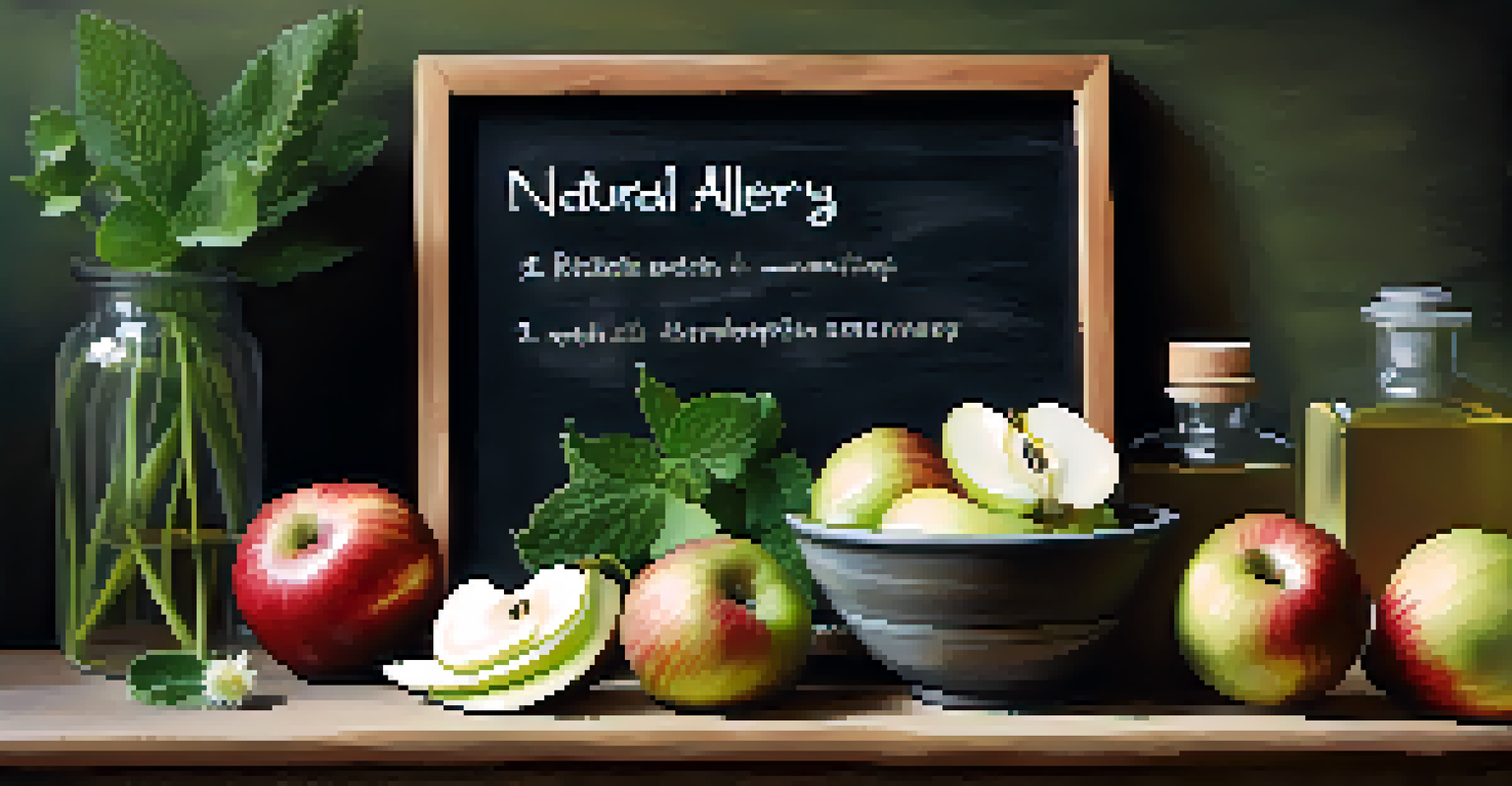Top Naturopathic Remedies for Seasonal Allergies Revealed

Understanding Seasonal Allergies and Their Triggers
Seasonal allergies, often triggered by pollen from trees, grasses, and weeds, can turn beautiful spring days into a sneezing nightmare. When these allergens enter your body, your immune system mistakenly identifies them as threats, leading to uncomfortable symptoms like runny noses and itchy eyes.
The greatest wealth is health.
These reactions can vary from mild to severe, depending on individual sensitivities. For many, the changing seasons herald the return of these annoying symptoms, making it essential to find effective relief. Understanding your specific triggers can significantly aid in managing your allergies.
By identifying what sets off your allergic reactions—be it specific plants or environmental conditions—you can take proactive steps to minimize exposure. This knowledge lays the groundwork for exploring naturopathic remedies that align with your unique needs.
Local Honey: A Sweet Solution for Allergies
One popular naturopathic remedy is local honey. The idea is that consuming honey produced by local bees exposes your body to small amounts of local pollen, potentially helping your immune system build a tolerance. It’s like a sweet form of immunotherapy!

Simply add a spoonful of local honey to your morning tea or yogurt, and enjoy not just its delightful taste but also its potential benefits. Many people swear by this remedy, claiming it has lessened their allergy symptoms over time.
Know Your Allergy Triggers
Identifying specific allergens like pollen can help you manage seasonal allergies effectively.
However, it's essential to remember that this remedy works best with local honey, as the pollen in honey from other regions won't have the same effect. So, the next time you're at the farmer's market, grab a jar and give it a try!
Quercetin: Nature's Antihistamine
Quercetin is a naturally occurring flavonoid found in foods like apples, onions, and berries. It’s known for its ability to stabilize mast cells, which release histamines during allergic reactions. By preventing histamine release, quercetin can help reduce allergy symptoms.
Nature itself is the best physician.
You can incorporate quercetin-rich foods into your diet or consider taking it as a supplement. Many people find that taking quercetin before allergy season begins can provide significant relief when the pollen counts rise.
Always consult with a healthcare provider before starting any new supplement, especially if you have pre-existing conditions or are taking other medications. This way, you can ensure it's a safe addition to your natural allergy relief toolkit.
Nettle Leaf: A Natural Anti-Inflammatory
Nettle leaf, often seen as a pesky weed, is actually a powerful ally against allergies. This herb contains anti-inflammatory properties that can help alleviate symptoms like sneezing and itching. Nettle can be consumed as a tea, in capsules, or even as an extract.
Many herbalists recommend nettle for its antihistamine effect, making it a popular choice among those looking for natural relief. Drinking nettle tea during allergy season can not only help soothe your symptoms but also keep you hydrated.
Natural Remedies Offer Relief
Naturopathic solutions such as local honey and quercetin can provide significant comfort from allergy symptoms.
As with any herbal remedy, it’s important to listen to your body. If you experience any adverse effects, it might be best to discontinue use and consult with a professional.
Essential Oils: Breathe Easy with Nature's Essence
Essential oils like peppermint, eucalyptus, and lavender can provide a comforting respite from allergy symptoms. Inhaling these oils may help open nasal passages and reduce congestion, allowing you to breathe a little easier. You can use a diffuser or simply add a few drops to a warm bath.
Another option is to create a steam inhalation by adding essential oils to a bowl of hot water. This method can help relieve sinus pressure and clear your airways. Just be cautious with the amount you use, as essential oils are potent and a little goes a long way.
Make sure to choose high-quality oils, ideally sourced from reputable companies. This ensures you’re getting the maximum benefits without any harmful additives.
Probiotics: The Gut-Area Connection
Did you know that gut health plays a crucial role in your immune response? Probiotics, the beneficial bacteria found in fermented foods like yogurt, kimchi, and sauerkraut, can help balance your gut microbiome. A healthy gut can lead to a more robust immune system, which may help mitigate allergy symptoms.
Incorporating probiotics into your diet can be as simple as enjoying a serving of yogurt or taking a probiotic supplement daily. This practice not only supports your digestive health but may also provide some relief during allergy season.
Lifestyle Changes Matter
Simple adjustments, like staying indoors during high pollen times, can greatly reduce exposure to allergens.
As always, it’s wise to consult with a healthcare professional before starting any new supplement regimen, especially if you have underlying health concerns.
Stinging Nettle: A Natural Histamine Blocker
Stinging nettle has gained popularity as a natural remedy for allergies due to its potential to block histamine production. This herb can reduce the severity of symptoms for many people, and it’s often enjoyed as a tea or in capsule form.
While it might take some time to see the benefits, many users report that regular consumption helps them manage their symptoms. Incorporating nettle into your daily routine can be an easy and effective way to tackle seasonal allergies.

However, be mindful of any personal allergies to nettle itself. Always start with a small amount to see how your body reacts before increasing your intake.
Lifestyle Tips: Simple Changes for Big Relief
In addition to these remedies, some lifestyle changes can make a significant difference. For instance, keeping windows closed during high pollen days and using air purifiers can help minimize exposure to allergens indoors. Staying indoors during peak pollen times, usually in the early morning, can also provide relief.
Regular cleaning can reduce dust and pollen buildup in your home. Consider washing bedding in hot water and vacuuming frequently with a HEPA filter vacuum to trap allergens effectively.
Lastly, staying hydrated and maintaining a balanced diet rich in fruits and vegetables can strengthen your body’s defenses against allergens. With a combination of naturopathic remedies and mindful lifestyle choices, you can take control of your seasonal allergies.